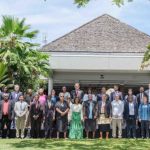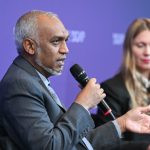
The story of Maldivian youth is often told as one of ambition. They talk about careers in tech, in medicine, in creative industries. They dream big. Yet alongside those aspirations sits something harder to measure: doubt. Many feel that their family background, the island they come from, or the connections they lack limit their chances of pursuing the roles they want.
Here, where opportunity is shaped as much by geography as by talent, self-doubt is not just personal, it is systemic. A young person growing up on a remote island knows the weight of distance, how limited transport and schooling can shrink horizons. Even in Malé, where opportunities cluster, connections often matter as much as skills. The question is not simply “Am I good enough?” but “Do I know the right people?”
Too often, ambition collides with structural barriers. The absence of diverse industries, the over-reliance on tourism, the scarcity of scholarships, and the patchwork of training programmes mean that the leap from aspiration to achievement is longer than it should be.
And when opportunities do appear, they tend to flow toward those already advantaged. If your family can afford to send you to Malé or abroad for higher education, you are positioned differently from the student who finishes secondary school in an atoll island and sees no clear path forward. This is where confidence gaps widen into fault lines.
The challenge is not only geography or money. Politics, too, creeps into hiring. As one young professional put it, “I have a family member who is in politics, and since I am categorised as a politically exposed person, there is a lot of animosity around hiring people like me. They either feel that my relationship might influence my work or that they might face difficulties from the opposing side. So it’s quite the conundrum.” The barriers, in other words, are not just about merit but about perception.
Even those with international degrees and strong credentials can struggle. One graduate, who returned to Malé with high-level qualifications from one of the most prestigious universities in the world, still found the doors of opportunity closed. The problem was not ability, but a system that too often rewards familiarity and connections over capability.
The way forward begins with transparency. Corruption and nepotism lie at the root of many of these barriers, quietly shaping who gets access to opportunities and who is left waiting. Without open and fair processes, even the best-intentioned scholarship or training scheme risks reinforcing the same inequalities it was meant to reduce. Transparent recruitment, public reporting on scholarship awards, and clear criteria for promotions and placements are not bureaucratic details; they are safeguards against a culture where connections matter more than competence.
Alongside transparency, other tools matter. Apprenticeship programmes that reach beyond Malé could open pathways for students in atoll islands. Scholarships tied to emerging industries like renewable energy, fintech, or creative sectors would help diversify opportunities beyond tourism. Businesses that commit to merit-based hiring can set new standards for fairness. Mentorship networks can show young people that their future is not limited to who they know but what they can do.
Technology, too, can reduce the disadvantage of distance. Remote learning, online networking platforms, and digital work opportunities have the potential to widen horizons. But for these to matter, the systems distributing them must be trusted, and that trust rests on transparency.
The danger is assuming that self-doubt is an individual failing. It is not. It reflects deeper structural inequities. To dismiss it is to ignore the invisible barriers that keep bright, talented young people from believing their futures are possible. To take it seriously is to acknowledge that our workforce is shaped not only by supply and demand, but also by trust, in oneself, and in a system that is meant to provide fair chances.
If we want Maldivian youth to believe in their dreams, then the work begins not in them, but in us. It begins with transparency, fairness, and the will to ensure that opportunity flows on merit rather than influence.












